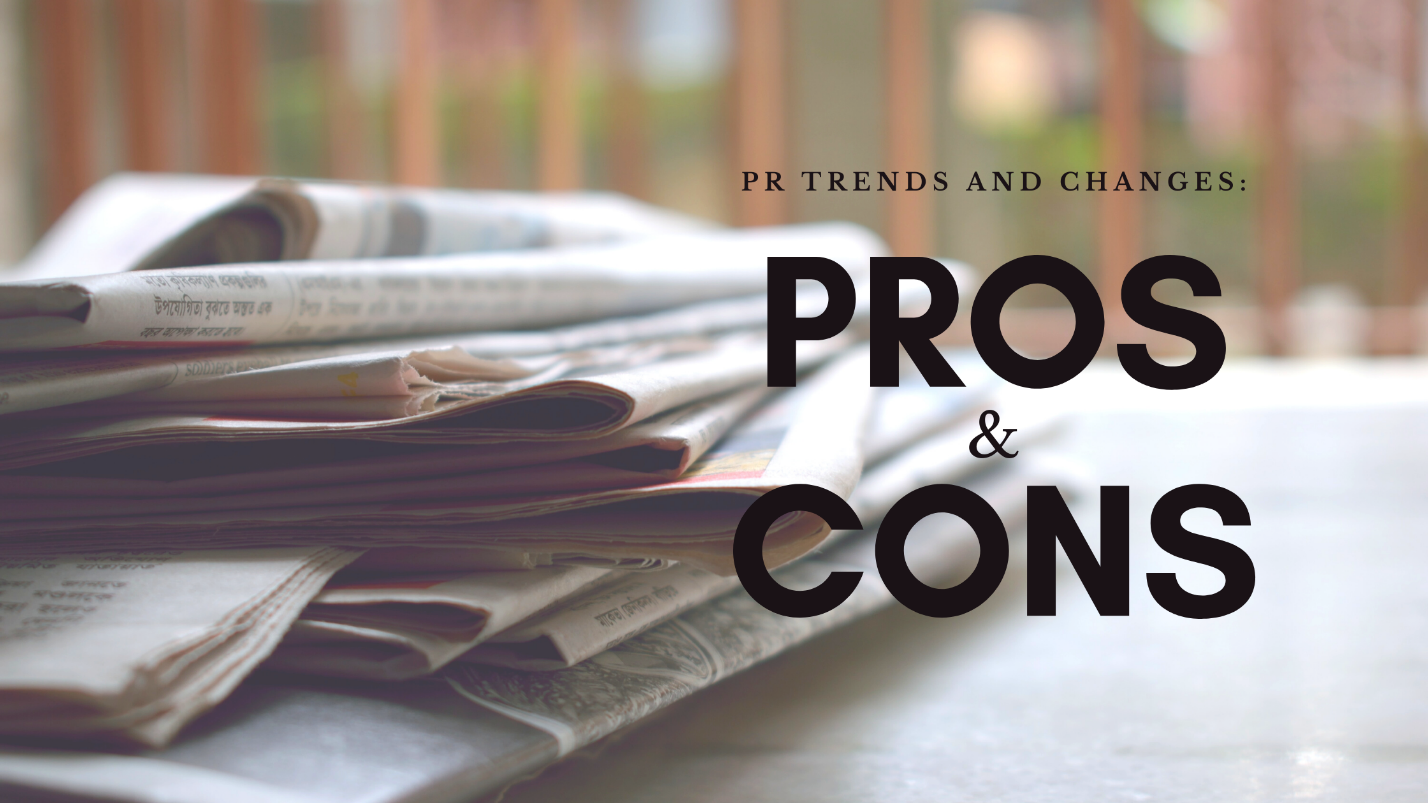
Pros and Cons: A Fast News Cycle, Twitter Replies, and Virtual Events
The pandemic has disrupted our lives, and the PR industry hasn’t been unscathed. But this is nothing new for PR pros – we’re always staying on top of trends, news, and tactics to tell stories, engage audiences, and develop content.
Over the last few months, some of the changes to the PR world include a faster news cycle, virtual events (and virtual event fatigue), and new social media features. There are pros and cons to each of these developments:
The Ultra-Fast News Cycle
Cons
PR pros are used to moving fast, and COVID-19 kicked the news cycle into high-gear. With new developments about the virus and how dozens of industries are coping each day, there’s a shorter window for us to pitch and land stories.
Writers are up to their ears in news and the influx of breaking news related to the virus can be disruptive: You may be working with a writer on a piece, but they may have to drop it when they’re reassigned to breaking news two days later. Not only does this pace make it hard to land stories, it’s also become more challenging to plan launches, as there are bound to be more conflicts. Timing can be critical and there’s lots of news overlap these days.
Pros
Many editorial calendars became null and void in the onset of the pandemic, as former storylines became irrelevant. Long-lead stories also got tabled in the onset of the pandemic. While the media shifted to focus on updates of the virus and related news, PR pros also had to adjust their plans, launches, and pitches.
But with each PR challenge, there’s opportunity. Reading the larger load of stories each morning can spark more story ideas than the average, pre-pandemic day. Trying new angles can also lead to new press relationships as writers cover new topics or companies shift their products, work style, and more.
Twitter Replies
Cons
Last month, Twitter added a new feature that lets you choose who can reply to each of your tweets.
While many of us are looking forward to fewer bots and trolls in our lives, limiting the replies could also impact engagement. One of the options is to only allow your followers to reply to your tweet, which could seem contradictory to how Twitter works, where we use hashtags to broaden our reach and impressions to reach new potential followers. This could be a pro or a con, depending on the goals for a Twitter profile. It could nurture niche group discussion, or it could prevent customer engagement.
Also, we’ll have to wait and see if this feature will be added to our scheduling platforms. Having to post tweets directly would be more time consuming, for those who want to use the limited replies option.
Pros
PR pros have a love-hate relationship with Twitter. It’s the place for keeping in touch with media friends, finding story opportunities, and reading or sharing the news. But for those of us who handle Twitter accounts for our clients, lots of replies can be daunting and time-consuming to handle.
The limited reply feature could be useful for consumer brands especially: Customer service complaints can often funnel through social media, but perhaps limiting replies could be a tactic in directing them to the right channels.
Selecting who can interact with a tweet could also foster community, where an organization or group can invite its followers to comment on an issue, providing a filtered, relevant discussion of the topic. Or even, subject-matter experts or executives could be @ mentioned to comment on an issue, and their replies would be front-and-center.
Virtual Events
Cons
Meeting invites can now invoke a sense of dread, as our calendars fill up with virtual happy hours, online fitness classes, and once audio-only conference calls that have moved to Zoom. Companies have shifted to host their events online with webinars, panels, breakout rooms, and courses. Not only are more meetings taxing on our schedule, but virtual event fatigue is real. Compared to their in-person counterparts, engagement takes another form online and it can be challenging for companies to make the shift to provide and get back the same value. It can take more strategy and a more robust marketing engine to connect with attendees to get them registered and to get them to participate, engage, and take action.
Pros
Changing event formats can also be a positive, opening the opportunity for more attendance where travel, schedules, and budget were limiting in the past. And, it can offer a way to connect with new potential customers, partners, and clients who couldn’t attend past in-person events.
Virtual meetings also offer a unique networking opportunity: In an earlier blog, Caster Senior Vice President Alex Crabb noted that virtual happy hours are a positive point, showing “the ‘stay at home’ side of people you only know through business.”
A good PR pro is resilient, adaptable, and strategic. Just as we’re getting our footing in today’s news climate, we’re already preparing for the next change.
Chat with us on Twitter (replies open!) @CasterComm @LauraShoebell.

